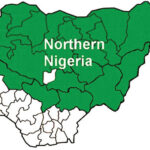If you want to observe how bare of greens the north is, take a road trip from one end to the other. Your journey should preferably be during those hot and dry months of March to May. It could start from Gamboru-Ngala in the far northeast to Maiduguri, to Damaturu through Azare to Kano then Katsina, Gusau and finally land in Sokoto. By the time you are in Sokoto, you’ll have had a clear picture of how stripped the far-northern landscape has become. You’ll have seen the forests interspacing the settlements mostly denuded of vegetation and trees. Most of the human settlements, dotted here and there, would be an amalgam of concrete and steel with hardly any vegetation and trees making a significant presence.
Now, it is heartwarming to find an upsurge in greening activities in major cities of the north signifying that there is now an understanding of the grave danger ahead if certain measures are not taken quickly. A few weeks ago, I overheard a report in one of the Hausa language foreign broadcasting services that the Kano State Government in conjunction with the World Bank-facilitated Agro-Climatic Resilience in Semi-Arid Landscapes (ACReSAL) and some youth organisations have planned to plant three million trees within the next 365 days. A few days ago, I noted the Kano State Governor, Abba Kabir Yusuf, actually bending down to plant a tree at the gate of the Government House symbolically flagging off the programme.
At the event, he was reported to have firmed up the promise to deliver the three million trees within the next 365 days. He also projected that before completing his first term 10 million trees would have been planted. The Emir of Kano, Muhammadu Sanusi II, who also planted a tree at the event urged the people of the state to plant trees in their houses to protect the environment from the impact of climate change. I understand that a good proportion of the tree seedlings would be planted in Kano City, along major streets such as Audu Bako Way, Airport Road, Hadejia Road etc.
Kano City, hitherto, had been a place chocked up as a human habitation with little or no concern for tree planting to beautify the city, give the people cleaner air and save the soil from degrading. The outlying towns and villages do not fare any better due to unregulated tree-felling over the years that has left them bare of any protection from the vagaries of nature. It is the same story wherever one faces in Kano State; whether it is towards Kura, Gaya, Gwarzo, or Danbatta.
- Stop illegal mining to end banditry
- Attack on Dangote Refinery will demarket Nigeria, democracy group warns
I have noted the involvement of ACReSAL which will apparently provide some of the wherewithal. But what excites me most is the participation of the traditional institutions, led by the Emir of Kano, who is a known activist who will be depended upon to mobilise them in this regard. The engagement with the youths should also form part of the strategy in attaining the objectives of the greening exercise by tapping into their energy and zeal. There is already a Make Kano Green Campaign run by some youngsters doing a great deal of good work raising donations of seedlings and planting them within communities that would be encouraged to take ownership of the trees to care for them.
One would have loved to see some institutional cooperation between the Kano State Government, ACReSAL, and traditional institutions with these youngsters which, from my perspective, would help to drive this campaign to fruition. Elsewhere in many of the adjoining states to Kano, there are upsurges of greening activities also sprouting up. A few days ago, in Jigawa State, Governor Umar Namadi launched the 2024 Tree Planting Campaign at Andaza town in Kiyawa Local Government Area, promising to plant 5.5 million economic trees, starting with 5000 seedlings to be distributed to households immediately.
Going up to the far northeast, Governor Baba Gana Zulum of Borno State is facing a different kind of tree-planting dilemma. Due to the Boko Haram insurgency, tree covers and woodlots around Maiduguri and other towns were cleared to allow clearer views for the embattled security men defending the city. Now that relative peace has returned to the state, these tree covers have to be replaced. It is a gargantuan task when one takes into consideration that Borno State is one of the worst affected by unregulated tree-felling. Last year in September, Governor Zulum launched the 1.2 million tree-planting campaign to address the shortfall.
It is gladdening to see tree planting having the kind of serious attention it deserves in the far-northern states. It is these states that are on the frontiers of the fight against desertification. Over the years they have suffered from the disastrous effects of aridity, and land degradation leading to the clearance of vegetation and tree cover. For the entire country, these frontier far-northern states form the bulwark in the war against desertification. Massive tree planting is the ammunition to sustain the fight.
 Join Daily Trust WhatsApp Community For Quick Access To News and Happenings Around You.
Join Daily Trust WhatsApp Community For Quick Access To News and Happenings Around You.


